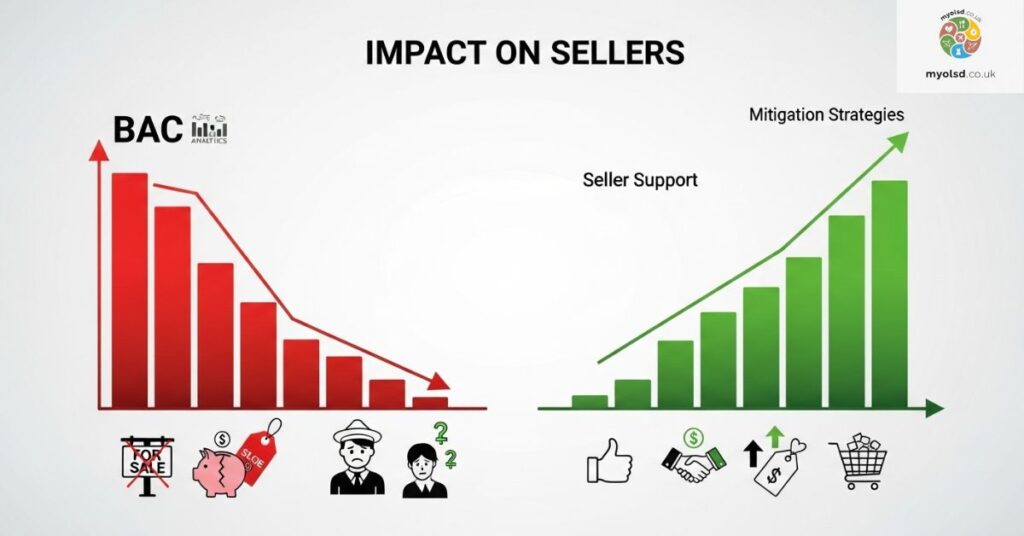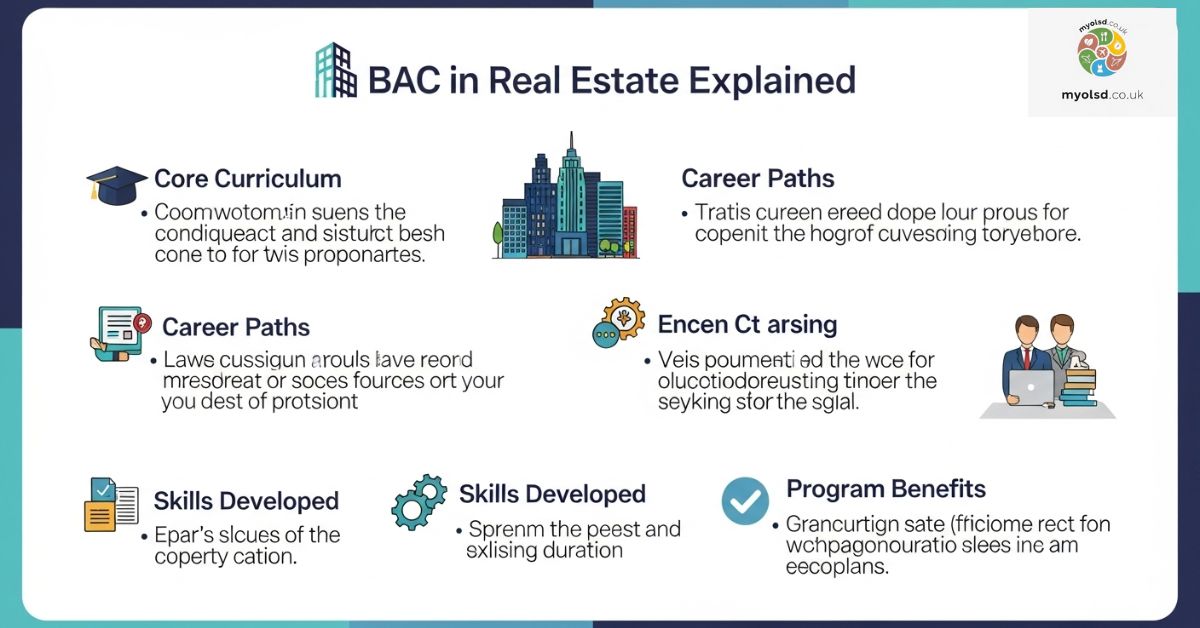Have you ever come across the term BAC while browsing property listings and felt totally lost? You’re not alone. Many buyers and sellers see it but aren’t sure what it really means. It can be frustrating when you’re trying to plan your budget or negotiate a deal and keep running into confusing jargon. If you’ve been wondering what BAC is in real estate and why it matters, you’re in the right place.
This post breaks down what BAC is in real estate in simple, clear language so you can finally understand it. You’ll learn what it stands for, how it works, and why it can affect your costs, whether you’re buying or selling. By the end, you’ll feel confident about navigating BAC in your next real estate transaction and making smarter decisions.
How Much Is the Buyer Agent’s Commission?

BAC stands for Buyer Agent Commission. It’s the fee paid to the agent who represents the buyer in a real estate transaction. In most cases, this commission is a percentage of the property purchase price, often around 2.5% to 3%. For example, on a $300,000 home, a 3% BAC would equal $9,000.
This percentage can vary depending on local market conditions, property type, and negotiation between agents and sellers. While BAC is often built into the seller’s costs, it ultimately influences the total cost of a sale. Understanding how much BAC is offered helps both buyers and sellers anticipate expenses and strategize better during the home-buying process.
Who Pays the Buyer Agent Commission?
Traditionally, the seller pays the buyer’s agent commission. This means that the BAC is included in the listing agreement between the seller and the listing agent. The seller’s agent then shares part of their commission with the buyer’s agent, creating a “total commission split.” For example, if the total commission is 6%, the listing agent might keep 3% and offer 3% as BAC.
However, changes in the real estate industry including lawsuits like Sitzer v. NAR and Moehrl v. NAR are challenging this structure. Some sellers may now choose not to offer BAC, requiring buyers to pay their agents directly. This shift makes it even more important for buyers to understand the BAC structure before starting property tours or signing agreements.
BAC Impact on Buyers:
For buyers, BAC directly affects the cost of representation. In markets where the seller covers BAC, buyers don’t pay their agent out-of-pocket. This can make the home-buying process feel “free” from an agent-fee perspective. However, if the seller doesn’t offer BAC, buyers may need to budget for their agent’s fee, potentially on top of closing costs, down payments, and mortgage insurance.
A clear BAC also influences agent motivation. Higher BAC rates can attract more agents to show a property, especially in a competitive market. On the flip side, if BAC is low or nonexistent, some agents might be less enthusiastic about showing the home, which could reduce buyer options. As a buyer, knowing BAC upfront helps you plan your finances and choose the right agent.
Read more Article:What Is Strong-Arm Robbery?
BAC Impact on Sellers:

For sellers, BAC can be a powerful tool to market a property. Offering a competitive Buyer Agent Commission say, 3% instead of 2.5% may encourage more buyer agents to bring their clients to view the property. This can increase exposure, speed up the sale, and potentially lead to better offers.
However, BAC is also a cost that reduces the seller’s net proceeds from the sale. Sellers must weigh whether offering a higher BAC is worth the incentive it creates for buyer’s agents. In slower markets, a strong BAC might help a listing stand out. In hot markets, sellers may reduce BAC to save on transaction costs. Understanding BAC’s impact on your bottom line allows for smarter pricing and negotiation strategies.
Can Sellers Negotiate the Buyer’s Agent Fee?
Yes, sellers can negotiate the BAC offered to buyers’ agents. The BAC is not fixed by law; it’s a contractual agreement between the seller and the listing agent, which is then shared with the buyer’s agent. This means the percentage can be adjusted based on market conditions, property type, or seller preferences.
For example, a seller in a high-demand neighborhood might offer a lower BAC and still attract buyers, while a seller in a slower market might offer a higher BAC to create more incentive. Sellers should discuss BAC with their listing agent early in the process to understand how different commission structures could affect marketing, exposure, and final sale price.
Do You Have to Pay a Commission If You Don’t Buy a Home?

In most cases, no. Buyer agents typically work on a “no purchase, no fee” basis, meaning they only get paid when a transaction closes. This arrangement allows buyers to tour properties, receive market research, and get professional advice without upfront costs. However, there are exceptions.
Some agents require buyers to sign an Exclusive Buyer Representation Agreement (EBRA). This contract may include clauses stating that if the buyer switches agents or purchases a property off-market, they still owe the agent a fee. Before signing any agreement, buyers should clarify when and how BAC applies to avoid surprises.
Conclusion:
Understanding what BAC is in real estate gives both buyers and sellers an edge in negotiations. BAC short for Buyer Agent Commission is a key part of the real estate commission structure, influencing costs, incentives, and market behavior. For buyers, it can determine whether they pay their agent directly or through the seller’s commission. For sellers, it’s a marketing lever that can help attract more agents and buyers to a property.
As the real estate industry evolves, BAC rules are changing. Lawsuits, federal rule changes, and shifting market dynamics are reshaping how commissions work. Whether you’re buying or selling, the best approach is to discuss BAC openly with your agent, understand your obligations, and factor it into your financial planning. Clear knowledge of BAC can save money, reduce stress, and make your real estate journey smoother.
Reader Interactions
Leave a Reply Cancel reply
We’d love to hear your thoughts about BAC. Share your experiences with buyer agent commissions in the comments below.
Primary Sidebar
Get Financing Now!
Looking for ways to cover your closing costs or agent fees? Explore financing options to make your home purchase easier.
I Want To Speak With Elizabeth

Need expert guidance on BAC and commissions? Contact Elizabeth for personalized real estate advice.
FAQS
What does BAC mean in sales?
BAC means Buyer Agent Commission, the fee paid to the buyer’s representative in a sale.
What are the cons of using a buyer’s agent?
It can add commission costs and limit flexibility if you’re under an exclusive agreement.
What is a BAC agreement?
A BAC agreement is a contract outlining the buyer agent commission and payment terms between the parties.
What is seller BAC?
Seller BAC is the buyer’s agent commission offered or paid by the seller to attract buyer’s agents.

